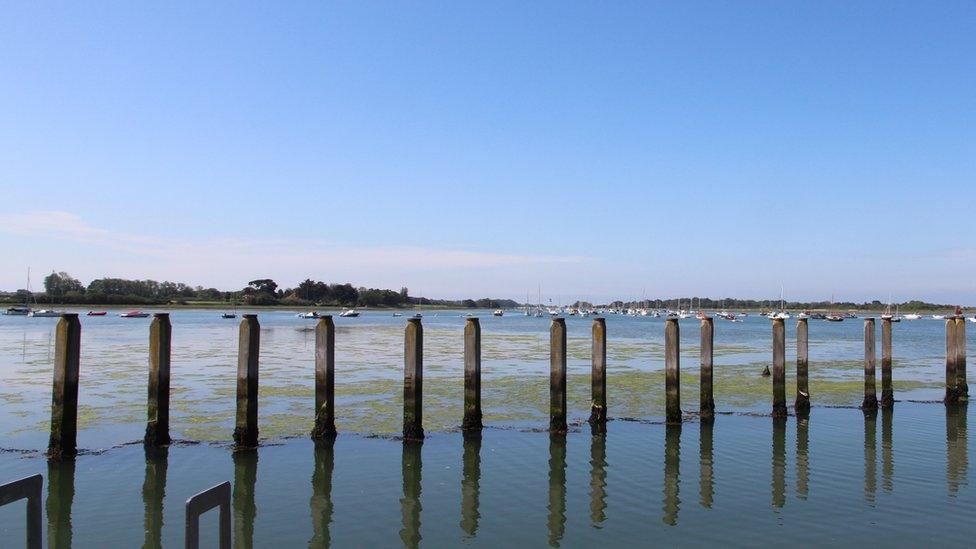Southern Water invests £1.5bn to solve sewage spills
- Published
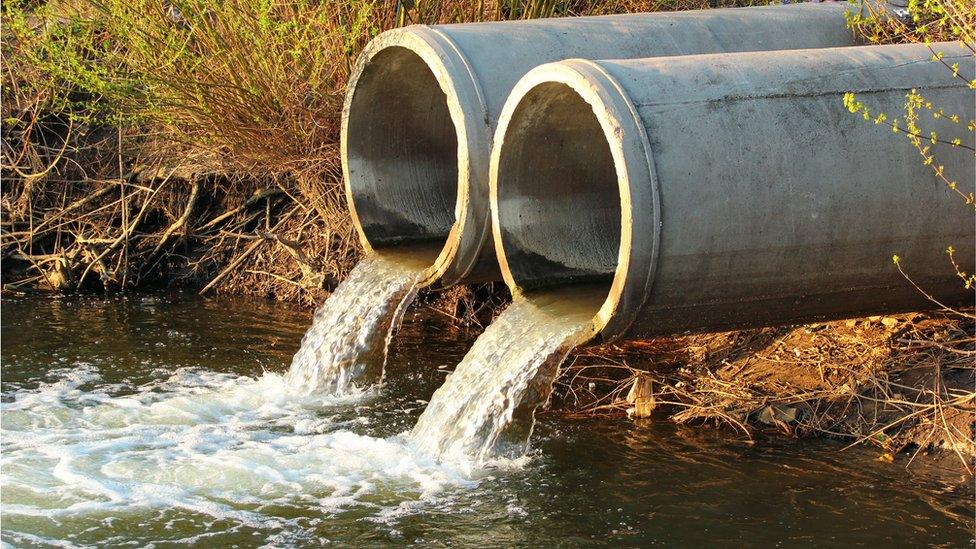
Southern Water's storm overflows aim to prevent homes getting flooded with sewage when heavy rain floods sewers
A water company claims a £1.5bn investment will "get to the root cause" of sewage flowing into the sea.
Southern Water's storm overflows aim to prevent homes and communities getting flooded with sewage when large volumes of rain flood the sewers.
In 2021 the company was fined a record £90m for deliberately dumping billions of litres of raw sewage into the sea.
The company serves Hampshire, the Isle of Wight, Sussex, and Kent.
It said customers would "notice the impact reflected in their bills".
But it also said it faced "tough choices" in "striking a balance between environmental protection" and "minimising the impact" on customers.
Southern Water said of about 1,000 storm overflows in the region, 50% hit the government's 2050 targets, with it releasing 10 or less a year.
Its new clean rivers and seas team, made up of environmental scientists, engineers, and industry experts, aims to reach 75% by 2035, and 100% by 2050.
It has also launched an interactive storm overflow map for its customers.
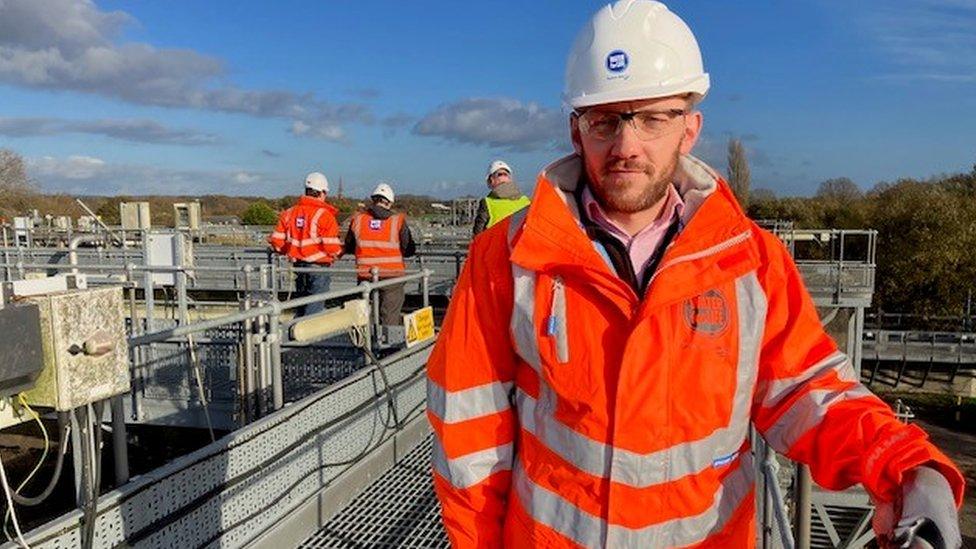
Taskforce leader Dr Nick Mills said the company was going "as hard and fast as possible" to reduce storm overflows
Other measures to reduce the volume of rainwater in sewers will include the creation of rain gardens, external, wetlands, tree planting schemes, the installation of water butts in dense urban areas, and improving existing infrastructure.
The firm said one recent success saw a "staggering" 70% reduction in spills at a site on the Isle of Wight after it introduced water butts to most of the houses on one street.
Taskforce leader Dr Nick Mills told the BBC: "Nearly all of the plan and the enhancements are going to benefit the environment, which our customers are telling us all the time is really important for them."
He also said they would be going "as hard and fast as possible" to reduce overflows.
Earlier this year Southern Water bosses opted not to take bonuses following criticism of the company's sewage discharge record.
CEO Lawrence Gosden said the company had heard customers' concerns, and took its impact on the environment seriously.
He added: "We cannot simply switch storm overflows off.
"But by implementing this clean rivers and seas plan and tackling the root cause, slowing the flow of rainwater going into the combined sewer, whilst increasing capacity of our network, we can reduce their use."
He called on customers and local authorities to help with solutions such as water butts or sustainable drainage systems "to channel rainwater safely and slowly back into the environment".

Follow BBC South on Facebook, external, X, external, or Instagram, external. Send your story ideas to south.newsonline@bbc.co.uk, external.
Related topics
- Published29 October 2023
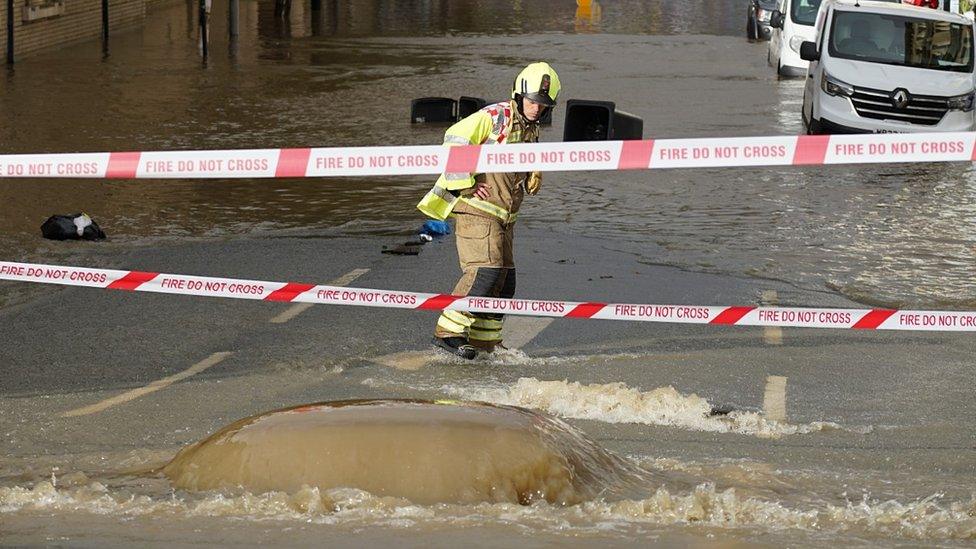
- Published23 September 2023
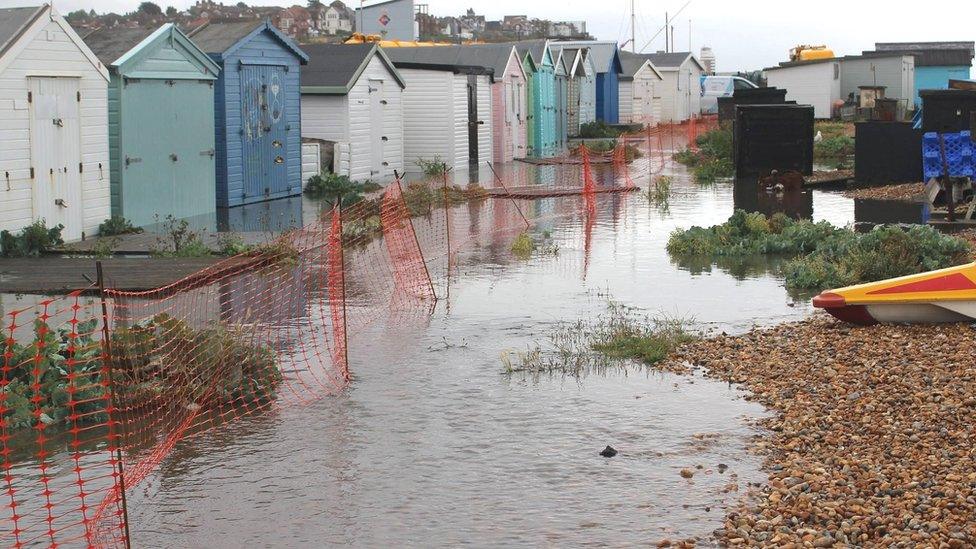
- Published22 September 2023

- Published7 July 2023
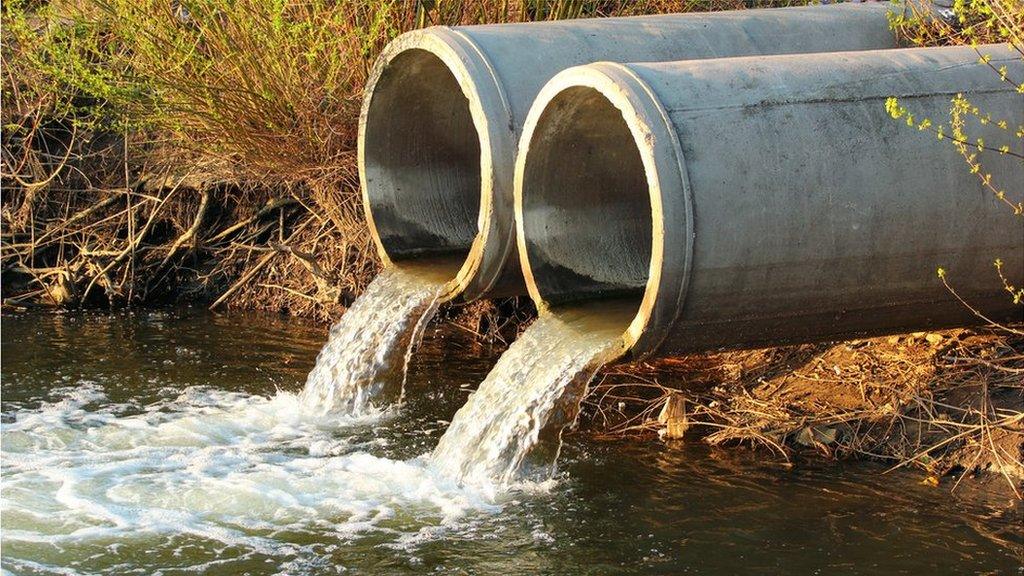
- Published14 December 2022
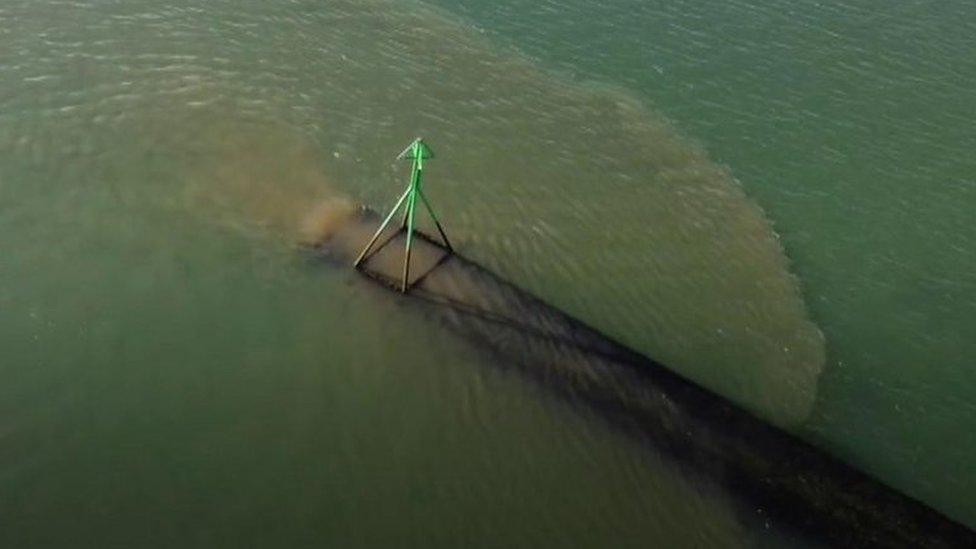
- Published9 July 2021
